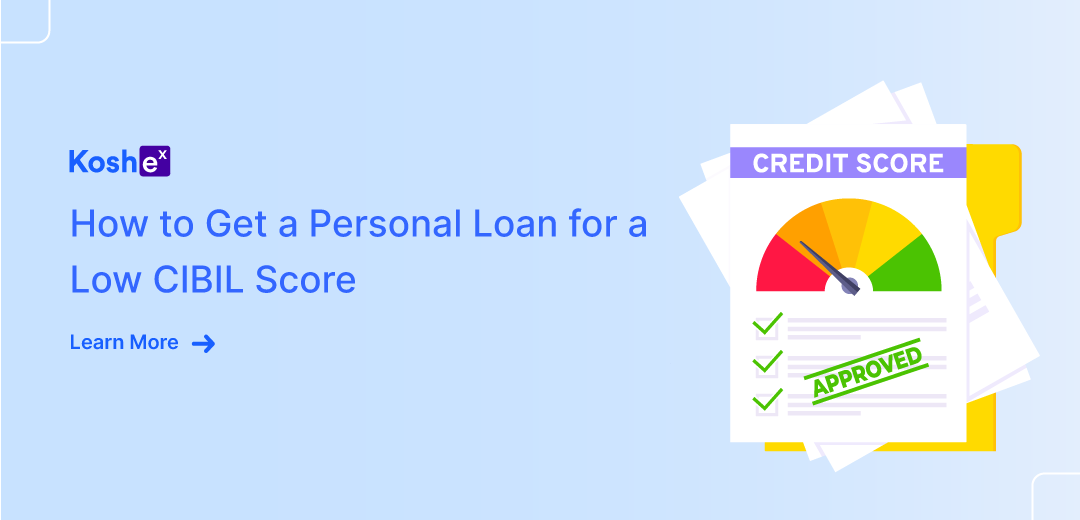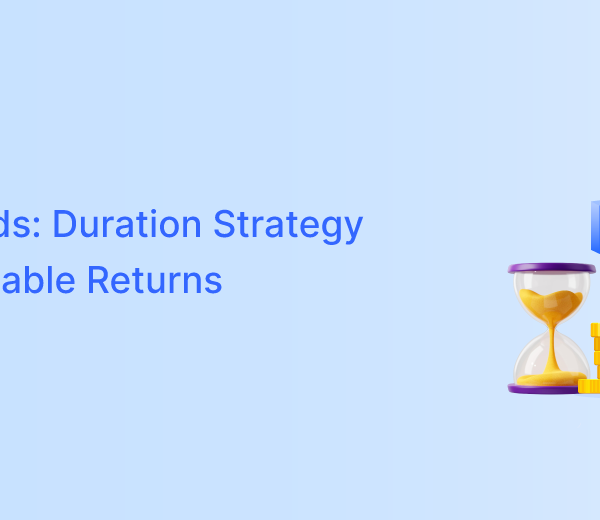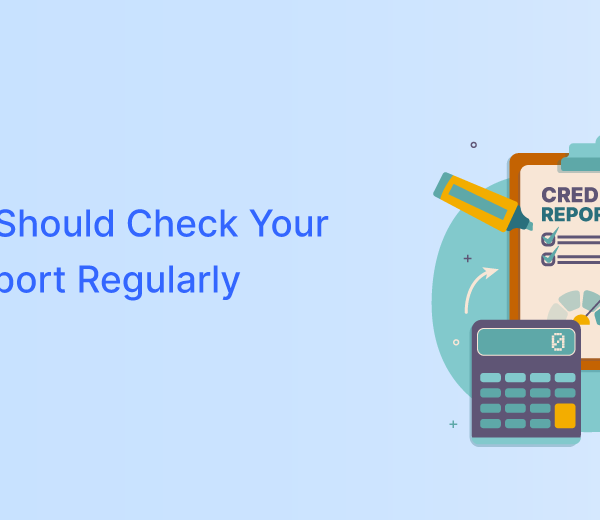Get a Personal Loan for a Low CIBIL Score?
Facing financial challenges and dealing with a low CIBIL score can be a daunting experience. Your CIBIL score, a three-digit number that summarizes your creditworthiness, significantly influences your ability to secure loans, credit cards, or any other form of credit. A low CIBIL score is often perceived as a roadblock, particularly when it comes to personal loans.
But a low CIBIL score does not have to be the end of your financial story. There are paths to explore, solutions to consider, and financial opportunities to seize even when your CIBIL score is less than ideal.
In this article, we will explore the available options, strategies to enhance your eligibility, and tips on how to get a personal loan with bad credit in India.
With the right approach and a clear understanding of your financial goals, you can unlock the financial opportunities you need. It is time to turn your financial challenges into opportunities and pave your way to a more stable and secure financial future.
Ready to explore your personal loan options? Sign up with Koshex today to discover financial solutions that fit your unique needs. Do not let a low CIBIL score hold you back.
Also read: All About Credit Score
Assessing Your CIBIL Score
A crucial starting point for anyone looking to secure a personal loan with a low CIBIL score is to understand the current state of their credit profile. These initial steps will provide you with essential insights into your financial standing and help you chart a course toward improving your creditworthiness.
Begin by checking your CIBIL score. You can access your credit report and score from various credit bureaus in India, including CIBIL. Your credit score typically falls within a range of 300 to 900, with higher scores indicating better creditworthiness.
If your score is on the lower end of this spectrum, it is essential to know exactly where you stand. This initial check not only provides you with a clear picture of your credit score but also helps identify any discrepancies that may need correction.
Also Read: Using Credit Cards Responsibly What to Know
Understanding Your Credit Report
Your credit report is a comprehensive document that outlines your credit history, including details about your existing loans, credit cards, payment history, defaults, and more. It is essential to understand the information presented in your credit report. Review the report carefully to identify any errors, inaccuracies, or discrepancies that could be negatively affecting your CIBIL score.
Understanding your credit report allows you to spot areas for improvement and take corrective action. It helps you build a strategy to enhance your creditworthiness and become eligible for personal loans, even with a low CIBIL score.
Also Read: Do You ACTUALLY Need A Credit Card?
Provide Collateral for Personal Loans
One way to improve your eligibility for a personal loan with a low CIBIL score is by providing collateral. Collateral is an asset that you offer to the lender as security for the loan. It serves as a guarantee for the lender in case you are unable to repay the loan. Collateral can take various forms, such as property, gold, fixed deposits, or other valuable assets.
By providing collateral, you mitigate the lender’s risk, which can make them more willing to approve your loan application despite your low credit score. Lenders often consider secured loans (backed by collateral) as less risky, as they have an asset to fall back on in case of non-payment.
Build a Relationship with the Lender
Building a positive and transparent relationship with lenders can significantly enhance your chances of securing a personal loan, even with a low CIBIL score. Lenders prefer borrowers who are responsible and trustworthy. Demonstrating your financial discipline, commitment to repaying loans on time, and a cooperative attitude can foster a good relationship with the lender.
Start by maintaining open communication with your lender. If you face challenges that may affect your ability to repay the loan, inform the lender in advance. Some lenders may offer flexibility or work out alternative repayment plans if they see you as a responsible borrower.
Applying for a Small Loan Amount
When you apply for a smaller loan amount, you reduce the risk for the lender. Smaller loans have lower monthly payments, making it easier for you to manage your repayment obligations.
Lenders may be more willing to approve a small loan for borrowers with a low credit score, as the potential loss in case of default is limited. This can serve as an excellent starting point to rebuild your credit.
By successfully repaying a smaller loan, you demonstrate your creditworthiness and responsibility to future lenders. This can gradually improve your credit score, making you eligible for larger loans in the future.
Also Read: How To Track Your Personal Expenses In 2024
Applying for a smaller loan amount is a practical approach to initiating the process of improving your creditworthiness while meeting your financial needs. Over time, as your credit score improves, you can access larger loans with more favorable terms.
Final Takeaways
While a low CIBIL score may present challenges, it does not mean the end of your financial aspirations. You can unlock personal loan opportunities by taking a proactive approach to improving your creditworthiness. Start by assessing your CIBIL score and understanding your credit report. Identify areas for correction and dispute any discrepancies that may be affecting your score.
Consider providing collateral as security for the loan, building a positive relationship with your lender, and starting with a smaller loan amount to demonstrate your commitment and reliability. Over time, these strategies can help boost your credit score and expand your financial opportunities.
Ready to embark on your journey to financial improvement? Sign up with Koshex today to learn more about achieving your financial goals and growing your wealth. You can also invest in Mutual Funds, Smart Deposits, Digital Gold, and Fixed Deposits through the Koshex app. Koshex also offers personalized investment suggestions based on your risk profile and goals.
Frequently Asked Questions (FAQs)
Q1. What is a CIBIL score, and why is it important for personal loans?
Ans. A CIBIL score is a three-digit number that reflects your creditworthiness. It helps lenders determine the risk of lending to you. A higher score typically improves your chances of loan approval and leads to better terms.
Q2. Can I secure a personal loan with a very low CIBIL score?
Ans. While it may be challenging, there are options available for individuals with low CIBIL scores, such as providing collateral or opting for a smaller loan amount.
Q3. How can I improve my credit score over time?
Ans. Improving your credit score involves consistent, responsible financial behavior. Paying bills on time, reducing outstanding debt, and correcting any credit report inaccuracies are some steps in the right direction.
Q4. Is it better to opt for a secured or unsecured personal loan with a low CIBIL score?
Ans. Secured loans, backed by collateral, are easier to secure with a low credit score. However, it is essential to weigh the pros and cons and choose the option that aligns with your financial goals.
Q5. How long does it typically take to see an improvement in my credit score?
Ans. The time it takes to improve your credit score can vary based on your financial situation. Consistent, responsible financial behavior over several months or even years can lead to positive changes in your credit score.









Leave a Comment